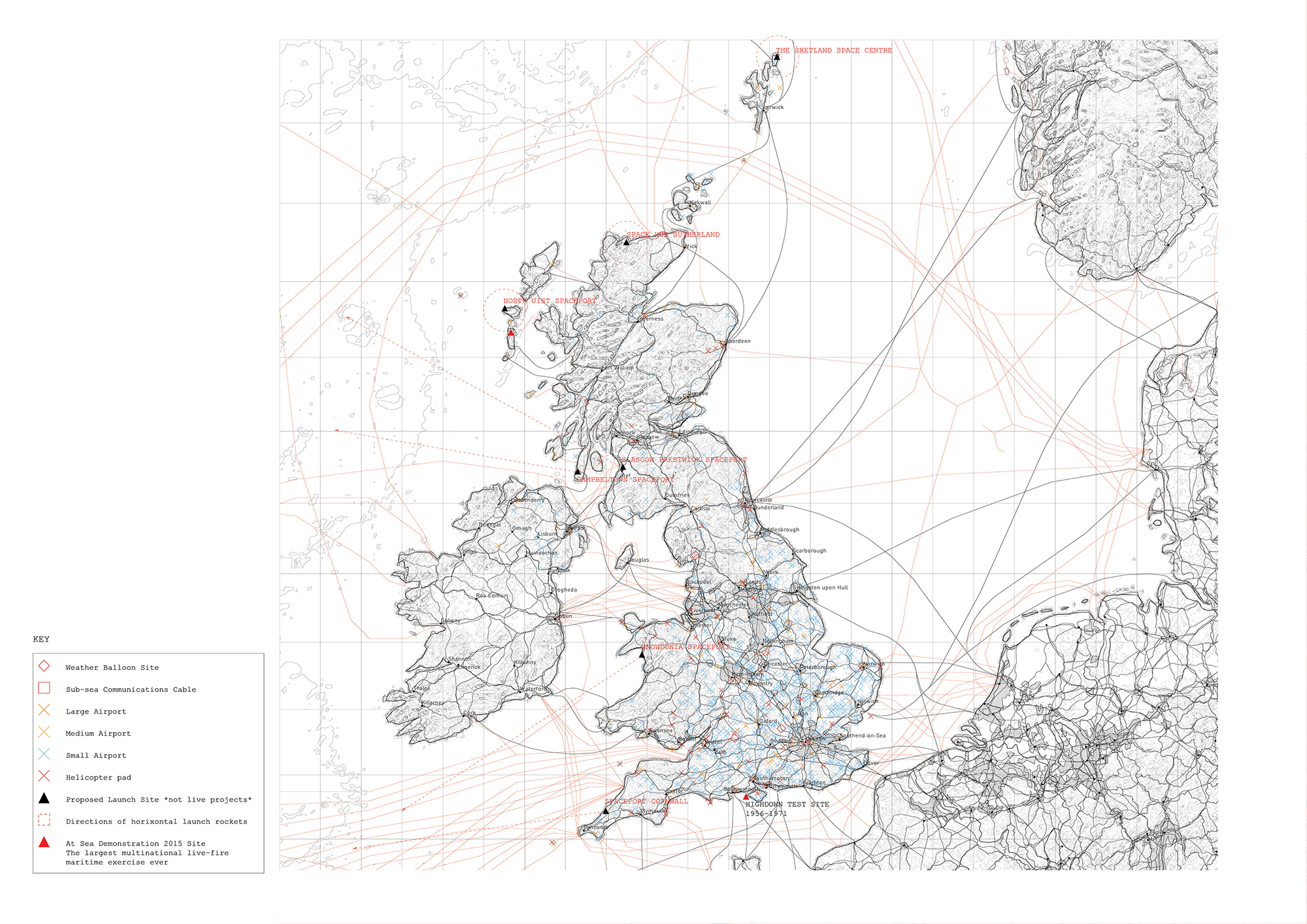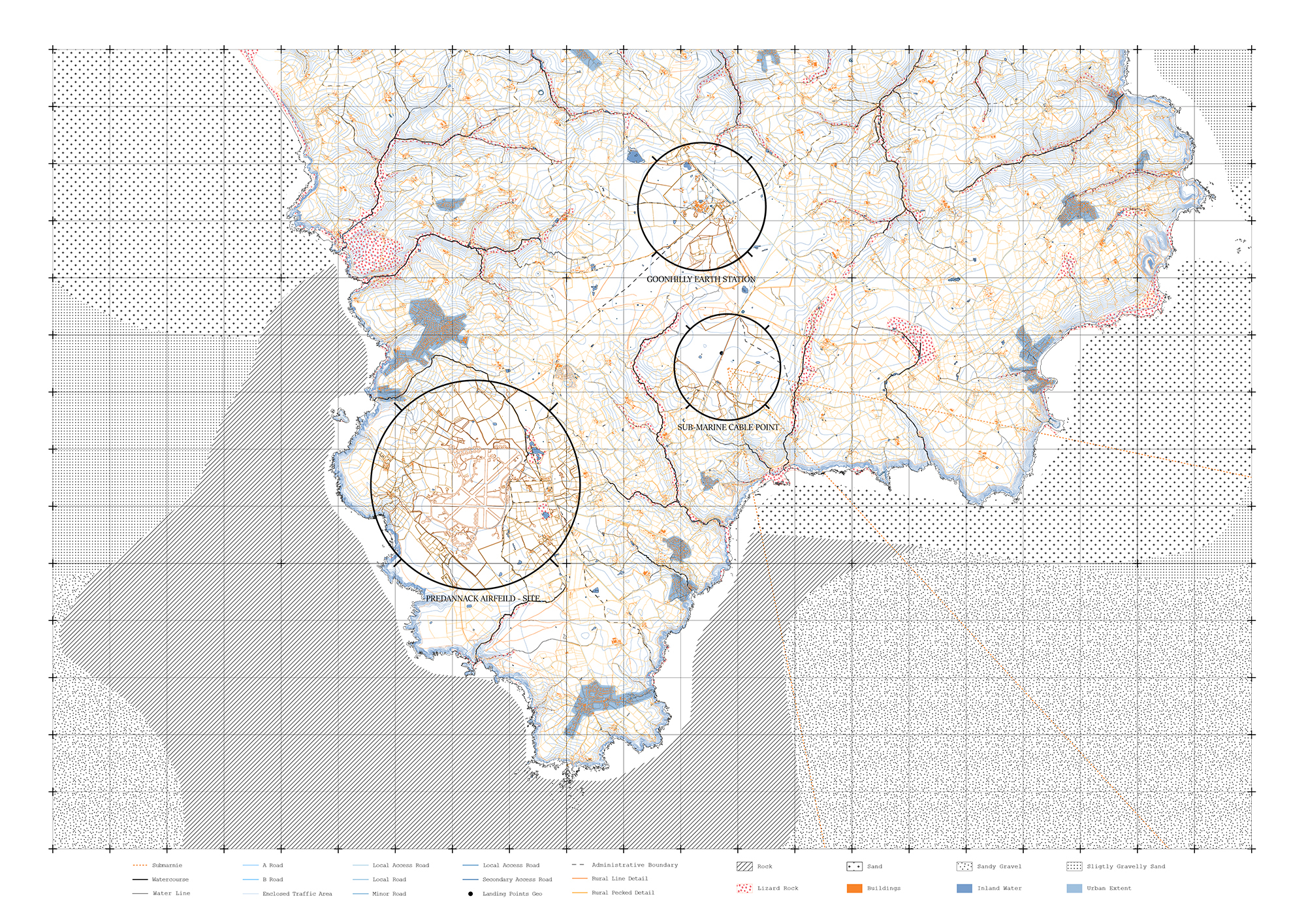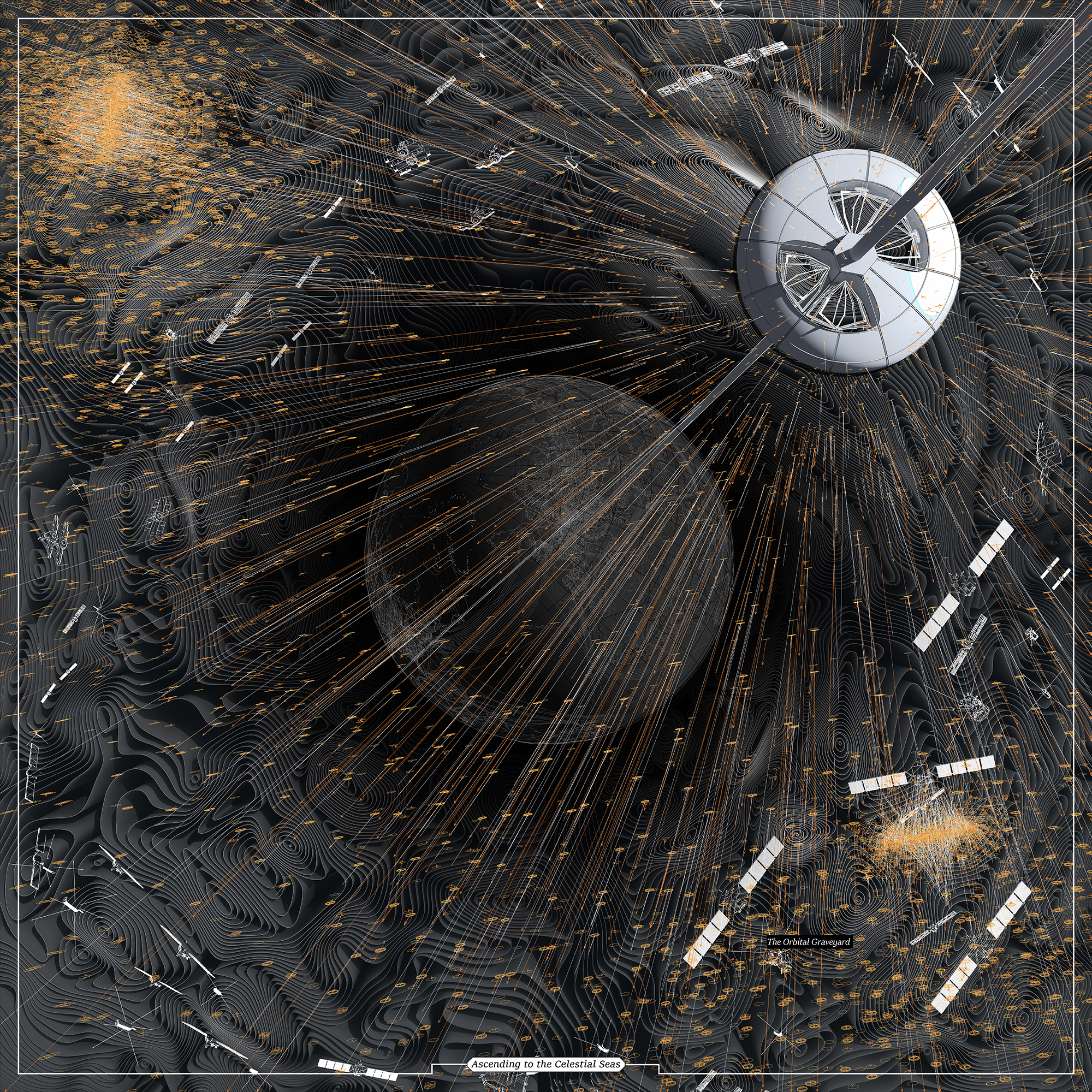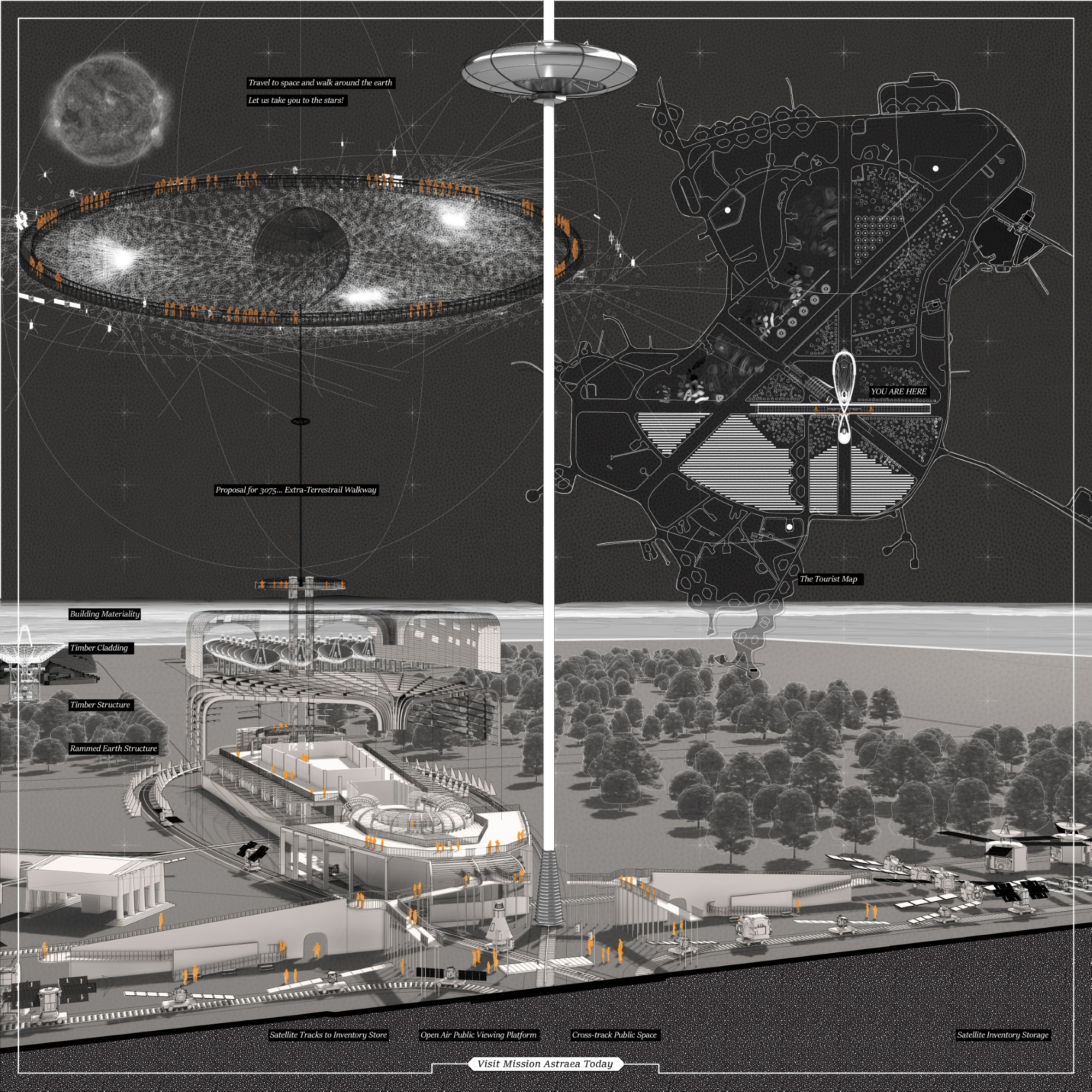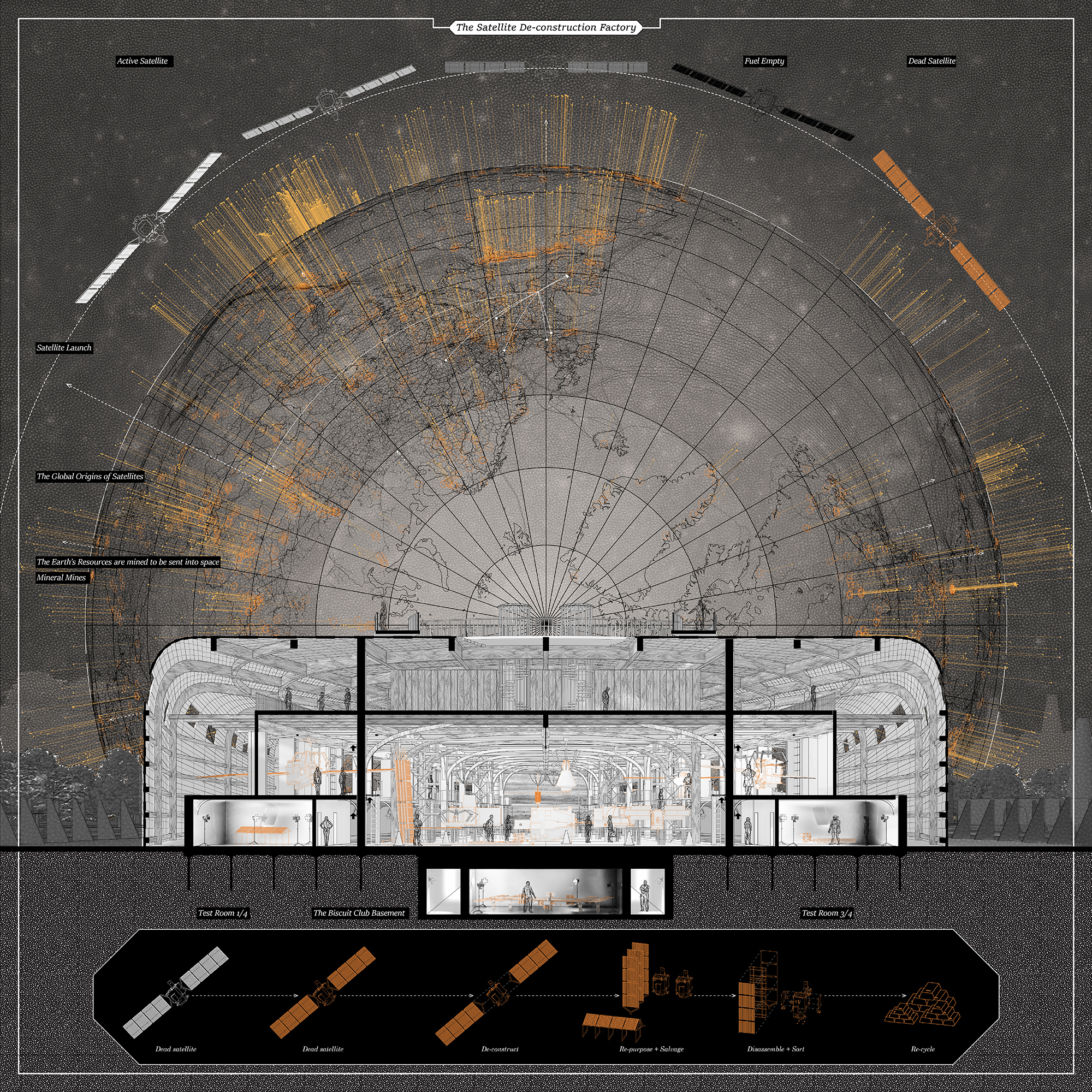Air, Architecture + Other Climates
[50.0°to 61.0° N : United Kingdom] : Carbon Transitions- 2020/21
John Cook, Ben Pollock + Laura Nica
︎︎︎ Home
︎︎︎ Previous // Next ︎︎︎
Helen Windsor
![The infinite carousel of space objects - the outer anthropocene]() Mission Astraea
Mission Astraea
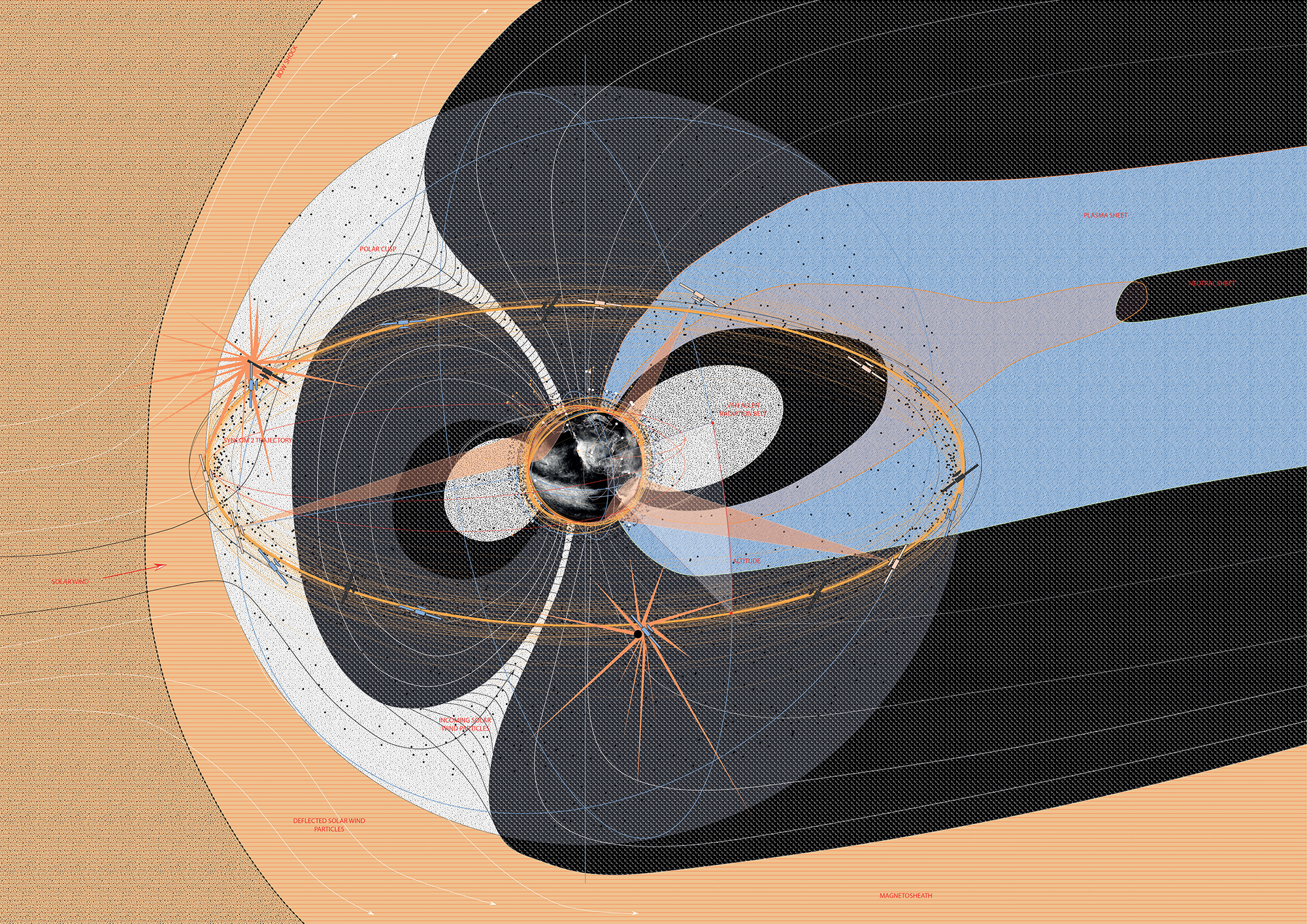
Trawling for Treasure in the Celestial Seas
The Lizard Peninsula, Cornwall, UK
Mission Astraea champions the embodied carbon of satellites, their life cycle and the potential to create a complex infrastructural system, where satellite production, launch, active life, recovery and re-use are processes within a circular economy. Years of launching satellites from earth has littered outer-space with high-value debris consisting of dead satellites, rocket bodies, space shuttles, asteroids and other human-made objects. Space is becoming an ever-expanding extra-terrestrial landfill, and with objects orbiting earth at thousands of miles per hour collisions risk cluttering space beyond use.
Celestial cleanliness is paramount for the human race to thrive in the new technological era. Mission Astraea explores solutions to the issue of space debris, in parallel with progressing opportunities for the UK to capitalise off decades of global space waste through reeling debris in from the atmosphere, back to earth to be recycled and sold into the global economy. The programme proposes; the space elevator, a space debris collection device; the deconstruction factory and debris sorting facilities; The Biscuit Society, a government intelligence program; and the Museum of Celestial Space Treasure. The grand opening is proposed for 2075 as a vision of the future, a sustainable space practice for the UK and a new, higher standard for the space industry.
